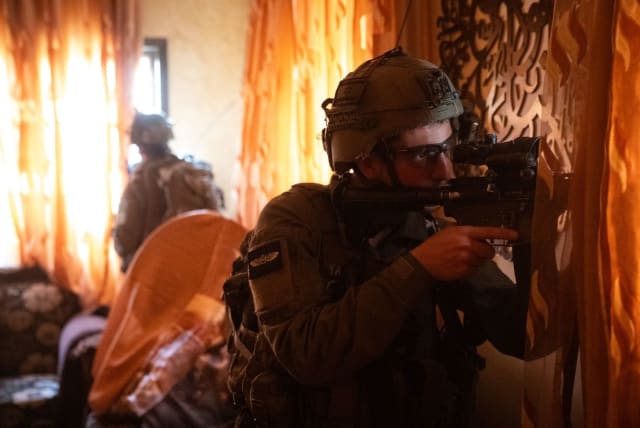
Ahead of Passover, Israel faces multi-front threats. This is clear from how pro-Iranian media is covering the current war on Israel being waged by Hamas, Hezbollah, and other groups. For instance, in several reports at Al-Mayadeen a number of trends can be seen.
First of all, there is an interview that Hamas leader Ismail Haniyeh gave to Turkish media. I it is highlighted by Al-Mayadeen because of its messaging. Hamas’ leadership visited Turkey over the weekend to cement ties with Ankara and get more support. Haniyeh said in his interview that "if the enemy decides to go to Rafah, our people will not raise the white flag, and the resistance is ready to defend itself." He also said that Israel has not agreed to a ceasefire or to start the war. He appeared to claim there would be no hostage deal. Hamas has stalled on a deal for months. Hamas is hosted by US ally Qatar, which the US and Israel rely on to broker the hostage talks.
Hamas leadership in Doha is now indicating how closely they coordinate with Hamas leadership in Qatar on discussions about Rafah and the “day after” in Gaza. “Regarding the issue of the day after the war in Gaza, and who will assume governance of the Strip, Haniyeh reaffirmed the need for ‘the management of the Gaza Strip to be carried out with Palestinian will,’” the report said.
In Lebanon, Hezbollah continues to say it is carrying out precision strikes on Israel. Hezbollah has increasingly said it is targeting Israeli military sites. For instance, last week, the group claimed to target an IDF division and brigade headquarters. It also claimed to target the IDF in the village of Arab al-Aramshe, wounding 14 soldiers. Over the weekend, Hezbollah said that it had “targeted a building used by Israeli occupation soldiers in the ‘Shomera’ colony with appropriate weapons,” according to al-Mayadeen. This is the wording that Hezbollah uses. It claims to use proportional responses to attack Israel using specific weapons, as opposed to arbitrary attacks.
In addition, Hezbollah said on April 20 that “the resistance announced that it had targeted two buildings used by Israeli occupation soldiers in the ‘Matula’ settlement, and two others in the ‘Shlomi’ settlement, with appropriate weapons.” In another statement, Hezbollah claimed it targeted a Humvee using an anti-tank guided missile. “Hezbollah [also] destroyed the spy equipment in Hanita,” Al-Mayadeen reported.
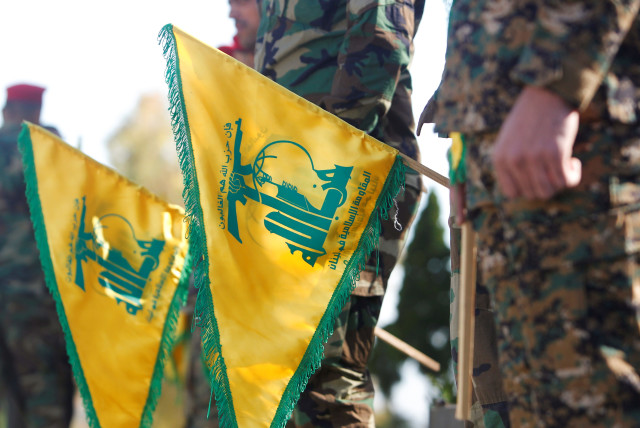
Iranian President Ebrahim Raisi will make an official visit to Pakistan from Monday to Wednesday, Pakistan's Ministry of Foreign Affairs said on Sunday.
During the visit, Raisi will meet the president and the prime minister of Pakistan, chairman of the Senate and speaker of the National Assembly, according to the statement.
Go to the full article >>Fear in Israel is growing that only approximately 40 of the 133 hostages kidnapped by Hamas on October 7 are still alive – so says the UK-based Daily Mail in a report published Sunday morning.
The report merely cited a “source” that said intelligence “is much easier to access than before October 7 when we had limited access to Gaza and we didn't have a lot of possibilities of sources.”
The approximation was allegedly based on intelligence gathered by the Shin Bet, but the security agency merely denied these claims.
“The publication in question is not true and is not in the opinion of the Shin Bet,” the agency said. “The numbers mentioned in the publication are in the writer's opinion only and are not based on information passed on by the Shin Bet.”
Go to the full article >>"The publication in question is not true."
Shin Bet
An IDF reservist who was home on temporary leave was lightly wounded after kicking a Palestinian flag in Kochav Hashahar, in the West Bank, and setting off an explosive charge that was implanted under it, Israeli media reported on Sunday.
מוריד את הדגל הפלסטיני - ונפגע ממטען | תיעוד הפיגוע בבנימין, מצבו של הפצוע קל מאוד והוא מסרב להתפנות לבית החולים @Doron_Kadosh https://t.co/ZSLujkwCiY pic.twitter.com/lFBrJlq9mh
— גלצ (@GLZRadio) April 21, 2024
Initial reports claimed that an Israeli resident of Binyamin, in the West Bank, was lightly wounded.
The IDF later confirmed the Israeli was an IDF solder in reserve who was on vacation.
The military further stated IDF troops were searching the area for suspects.
Go to the full article >>A Jewish Yale University student was jabbed in the eye with a flag pole by an anti-Israel protest on Saturday night, Sophomore Sahar Tartak told The Jerusalem Post.
Tartak, a history student and editor-in-chief of the Yale Free Press, had attempted to film the pro-Palestinian protest encampment that had been set up on the campus.
The visibly religious Jewish student and her friend were immediately met with a wall of five activists each, who did not allow them to pass.
“One of them takes their Palestinian flag and waves it in my face and then jabs it in the face,” said Tartak.
Tartak reported the assault to campus police, but she is unaware of any action taken besides calling an ambulance for her. The student went to the hospital, but was discharged and will not suffer permanent damage. Mentally, however, Tartak said that she was in an “awful” state.
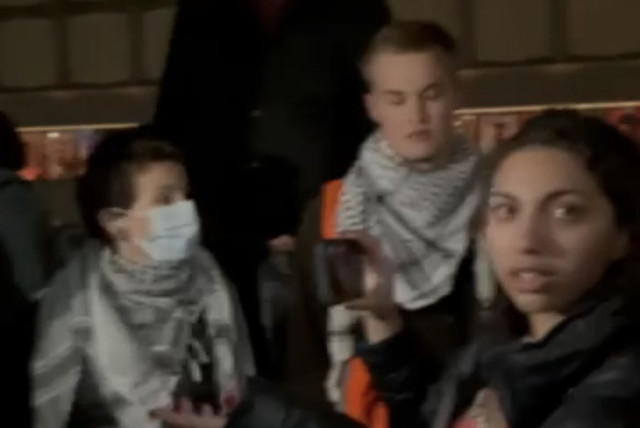
Returning to campus has become a daunting prospect, as according to her “All these students know who I am.”
An explosion at a site used by Iranian-backed Shi’ite militias in Iraq has brought a spotlight on the role that these groups play in Iraq and their threat to the region. The explosion took place overnight between Friday and Saturday, April 20. The site includes a hangar and several concrete walls. It is part of a compound used by the Iraqi-based Popular Mobilization Units, a group of militias that are generally linked to Iran. These groups are mostly made up of Shi’ite men, but some of them also include other Iraqi religious and ethnic groups.
The site of the explosion is around 30 miles north of Baghdad. Members of the militias visited the site and investigated a large crater. The Iraqi authorities were investigating the incident but appeared to indicate that they did not detect any planes or drones in the area before the explosion. The message from Iraq, therefore, is to downplay the mysterious explosion. The Iranians also downplayed reports of an Israeli airstrike on Friday, April 19. This is message discipline in the Iranian camp. Iran wants to downplay any incidents that appear to be a setback for Iran or its proxies and allies. Nevertheless, experts who follow Iraq and open-source intelligence analysts have concluded that the explosion seems to have taken place where a container was located that may have housed munitions.
The question is, who are these Iraqi-based Iranian proxies and allies? The militias in Iraq have deep roots that are tied to Iran. For instance, the Badr Organization, which is linked to the militias, has its origins in 1980 when it was working alongside the Islamic Revolutionary Guard Corps in Iraq in opposition to Saddam Hussein’s regime. Abu Mahdi al-Muhandis, a leader of Kataib Hezbollah in Iraq, who was killed in 2020 by a US drone strike, also earned his spurs in the 1980s working with the Iranians. These groups are also tied to Hezbollah and other Iranian-backed groups in the region.
The Iranian-backed militias in Iraq grew after the US invasion of 2003. They benefited from the invasion and the fall of Saddam. Within a few years of 2003, they had grown exponentially and began to take on more official roles in Iraq because the militias were tied to political parties. In 2014, when ISIS invaded Iraq, the militias got another boost by a fatwa from Shia cleric Muqtada al-Sadr, who called on young men to go fight ISIS. The men were funneled into units by the militias, expanding their force to more than 100,000 men. When the war on ISIS was over, the militias were able to get official funding as a paramilitary organization. This cemented their official role.
As such, the militias were able to stockpile more weapons and control military compounds in an official capacity. For instance, the site called “Kalsu,” north of Baghdad, where the explosion took place was formerly used by the US as a military base and then handed to the Iraqis, who let the militias use it.
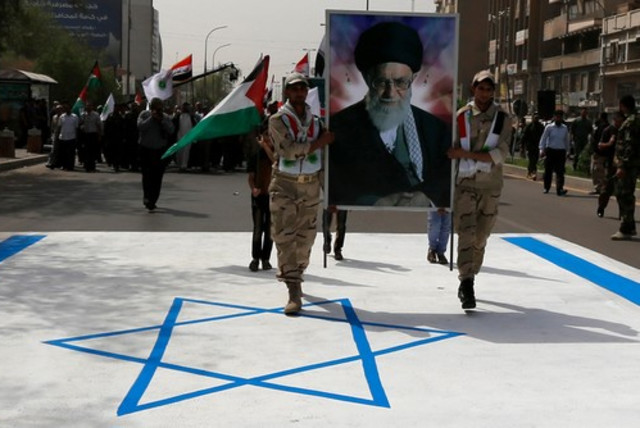
In 2017, when ISIS was largely defeated in Iraq, the militias set their sights on controlling the Iraq-Syria border. On the Syrian side at Albukamal, the Iraqi militia Kataib Hezbollah set up a headquarters. Later, the Iranians swooped in and built a base near Albukamal.
Go to the full article >>Police arrested nine suspects, residents of Iswayia in east Jerusalem, in recent weeks for throwing explosives, fireworks, and stones at security forces, the police said on Sunday morning.
The nine suspects, aged 17 to 23, were arrested after police investigations into riots that occurred following October 7 in Isawiya.
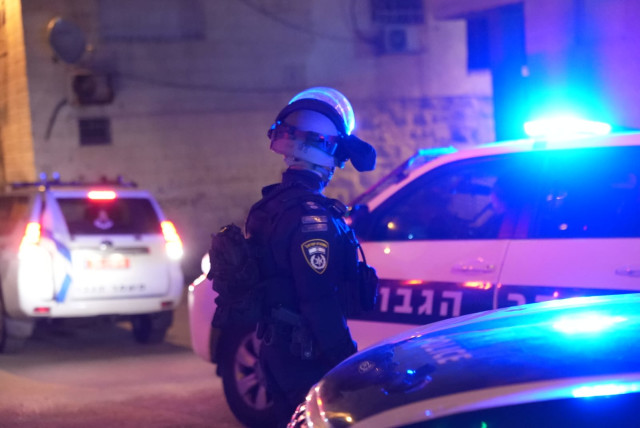
Police investigation found that the suspects had been involved throughout the years in violent riots in the neighborhood but also on Temple Mount.
Go to the full article >>There was an attempted shooting and stabbing terror attack at the Beit Einun junction, north of Hebron, according to IDF reports on Sunday.
One terrorist attempted to stab IDF soldiers, while a second terrorist shot at soldiers from Palestinian territory, Israeli media reported.
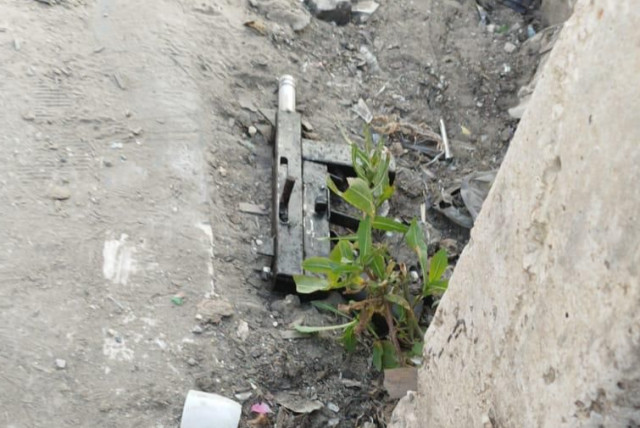
On Passover eve, Monday, April 22, a new flotilla carrying so-called peace activists and journalists and 5,500 tons of humanitarian aid is scheduled to set sail from Turkey to the Gaza Strip. Its mission: “To assist the residents of Gaza and to break the Israeli siege.”
On May 31, 2010, almost 14 years ago, the Israel Navy faced violent resistance from armed activists on board the MV Mavi Marmara, resulting in the Gaza flotilla raid in which nine activists were killed and 30 wounded, and 10 Israeli commandos were wounded, one seriously. This time, Israel must be smart and ready for any eventuality.
The initiative is organized by the Freedom Flotilla Coalition (FFC), comprising a dozen NGOs from countries that include the US, Turkey, and South Africa. Its leader is Fehmi Bulent Yildirim, president of the Turkish NGO Humanitarian Relief Foundation (better known as IHH), which was outlawed by Israel in 2008.
Last September, Israel intercepted a shipment from Turkey to Gaza that included 16 tons of ammonium chloride, which can be used to make rocket fuel.
Go to the full article >>A security source in Iran, who requested to remain anonymous in an interview with the Lebanese newspaper Al-Akhbar, claimed that Israel's response to Iran was restrained due to fear of strong Iranian retaliation.
"The Israeli attack at Isfahan was smaller in scope than the recent Iranian attack that involved 300 missiles," the source explained.
"Due to this, Iran now has the upper hand in the new balance of power against Israel. However, Tehran is not seeking to increase tension at this time."
Although the source explained how tensions between Israel and Iran are expected to calm down, confrontation between the two sides is expected to continue in the form of hidden battles.
Go to the full article >>







